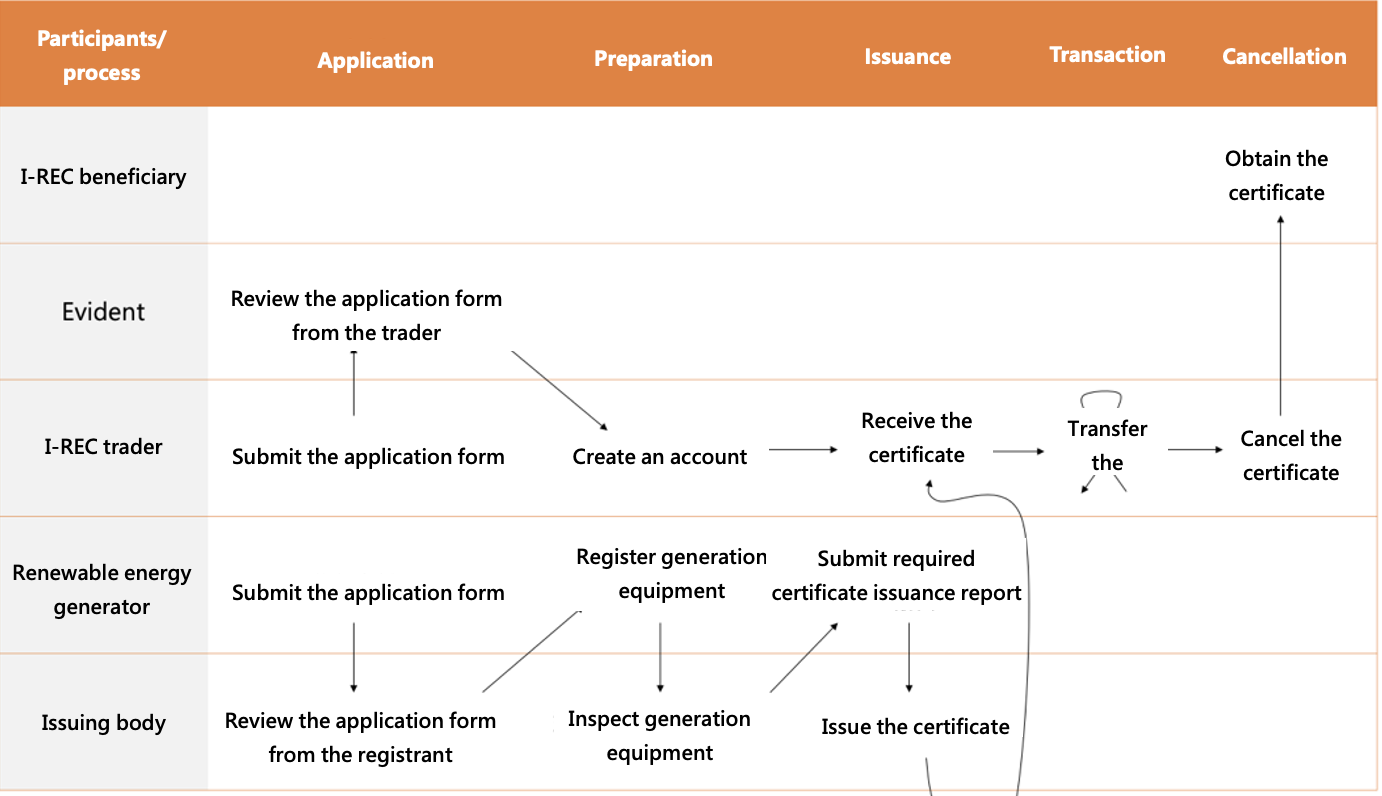Introduction
The I-REC is an Energy Attribute Certificate (EAC) issued under the governance of the International REC Standard (I-REC Standard), a non-profit organization established in the Netherlands. The I-REC Standard is financially supported by independent donors, market participants, and certificate issuers who rely on its green power tracking and verification mechanisms. Its mission is to "ensure that everyone has access to high-quality, verifiable renewable electricity." The organization does not engage in market trading but focuses on developing and upholding robust certification standards and issuance systems. The facilitation of certificate transactions is left to market forces.
Key attributes
-
Certificate Validity: One year
-
Issuing entity: Authorized agents commissioned by the I-REC Standard
-
Geographical coverage: Refer to the official list of issuing countries. I-REC usage generally falls into three categories:
-
Markets fully reliant on I-REC: Israel, United Arab Emirates
-
Markets with I-REC coexisting alongside local EACs: Japan, Mexico, Taiwan
-
Markets that do not permit I-REC: Most European countries
-
-
Issued volume: As of the end of November 2024, approximately 270 million certificates were issued in the year, with a historical cumulative total of around 889 million certificates
-
Accounting basis: Certificates are issued based on measured electricity generation at the production source
-
Tracking entities: National grid operators, regulatory authorities, or designated public institutions
Operational flow

Source: I-REC Documents, collated by InfoLink
To initiate the process, generators submit facility data to an authorized I-REC issuing body, register their power plant, and apply for renewable energy certificate issuance. Once issued, these certificates can be transferred between market participants. I-REC has no formal restrictions on the number of trades, allowing unlimited transfers between accounts.
Ultimately, certificates must be retired by the entity claiming the environmental benefits—such as governments or corporate supply chain partners. Retirement of certificates is a key requirement for demonstrating renewable energy usage.
Procurement mechanisms
Certificates can be purchased through authorized local issuing agents, some of which may operate retail markets. Market participants can engage with issuing entities across countries to acquire I-REC certificates.
According to I-REC market rules, participants must retire certificates before they can be claimed or sold to end users, ensuring that the environmental benefits are properly allocated.
Certificate price
The price of I-REC certificates is subject to market supply and demand dynamics, leading to wide variations across regions.
-
In Brazil, 2023 prices ranged between USD 0.16–0.19 per MWh
-
In India, prices declined from USD 0.851/MWh at the beginning of the year to around USD 0.40–0.50/MWh by year-end, driven by a surge in certificate issuance.
Recognition and compliance
Several international organizations have formally recognized I-REC for reporting and compliance purposes, including:
-
Greenhouse Gas Protocol (GHGP), Scope 2
-
CDP
-
RE100
-
ISO Standards
Last Updated: December 4, 2024